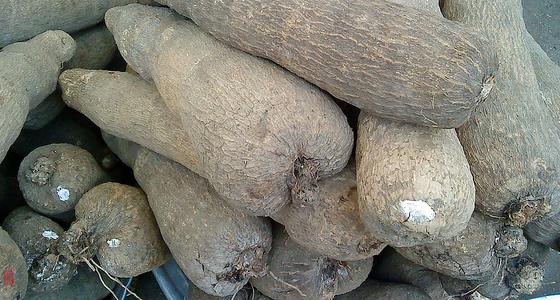 Three United Nations bodies have called on the global community to place food security and nutrition at the centre of Africa’s development Agenda.
Three United Nations bodies have called on the global community to place food security and nutrition at the centre of Africa’s development Agenda.
The three Rome-based United Nations agencies; the Food and Agriculture Organization (FAO), the International Fund for Agricultural Development, (IFAD) and the World Food Programme (WFP) said supporting smallholder farmers in Africa is a panacea to improving global food security and empowering rural women.
According to the three bodies addressing gender inequalities would transform the lives of women as well as the lives of their families and communities.
The three bodies stated this in a joint statement issued on Tuesday and made valuable to the Ghana News Agency in Accra by Yumiko Arai, of the FAO office in Japan.
According to the statement, José Graziano da Silva, Director-General of the FAO; Kanayo Nwanze, the President of the IFAD, and Ertharin Cousin, Executive Director of the WFP, stated at the Fifth Tokyo International Conference on African Development (TICAD V) in Yokohama.
The three agency heads said that the most effective key to reversing hunger and poverty in developing countries lay in responsible investment by governments and the private sector in sustainable agricultural and rural development.
The statement noted that in sub-Saharan Africa, Gross Domestic Product (GDP) growth generated by agriculture had been shown to be eleven times more effective in reducing poverty than GDP growth in other sectors.
It stated that it was time to invest in the critical agents of change: small producers and their organizations, family farmers, fishers, livestock keepers, forest users, rural workers, entrepreneurs and indigenous people.
The FAO, IFAD and WFP heads however commended countries that had made strong efforts to reduce hunger within their boundaries and on the African continent in general.
The three agencies indicated that the discussions at TICAD would help inform the high-level meeting to be held on June 30 and July 1, in Addis Ababa, co-organized by the African Union, FAO and supported by the Lula Institute.
The three bodies agreed that hunger, malnutrition and extreme poverty should remain at the core of the post-2015 agenda, following the deadline for the Millennium Development Goals, and expressed confidence that the world could overcome the twin scourges of poverty and hunger within a generation.
The statement said, they however, issued a warning that this would not be achieved unless we address the underlying causes of gender inequality and lift the barriers to the empowerment of women – the main producers, processors and traders of food in Africa, despite the fact that 85 present of agricultural land was owned by men.
Source: GNA























